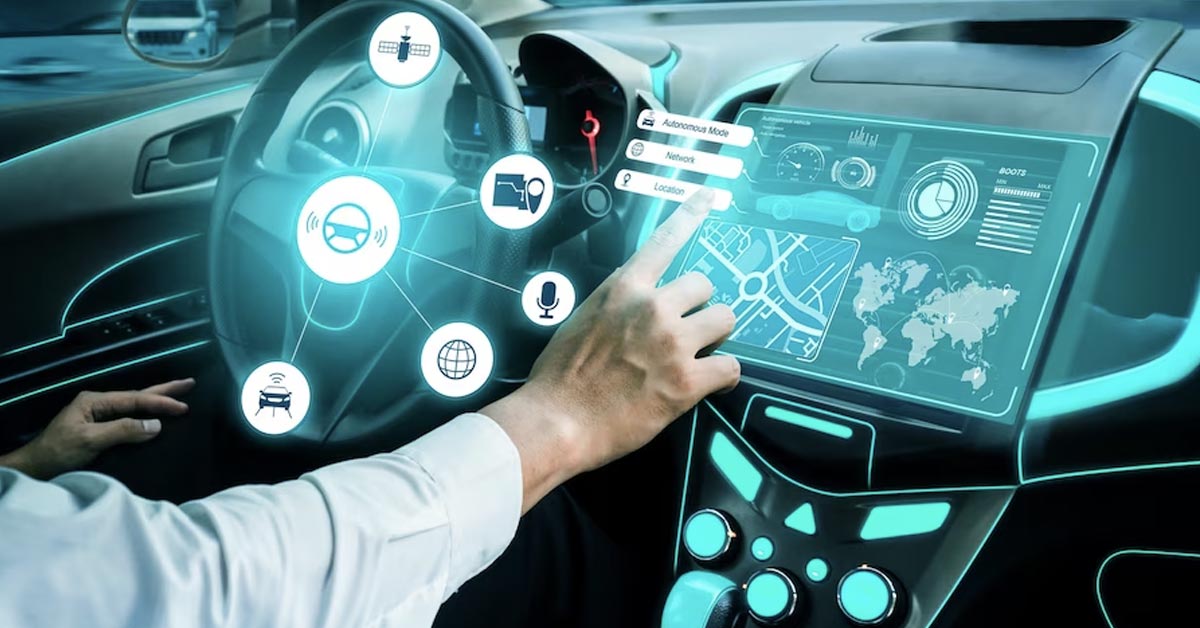Nowadays, where technology redefines our daily lives, integrating innovative features in automobiles has become increasingly common. While these advancements offer convenience and efficiency, they raise significant questions about privacy. Are our smart cars spying on us, and what exactly do we need to know about the data they collect? This article explores the intricacies of smart car technology, delving into the types of data collected, the potential sharing of this data with third parties or government entities, the connection between smartphones and smart cars, and crucial tips on safeguarding your privacy as a smart car user.
What Data Smart Cars Collect?
Smart cars have many sensors and technologies that continuously gather data during your driving experience. This data encompasses a wide range of information, including your precise location, driving speed, braking patterns, and even the performance metrics of your vehicle. The goal is to create a comprehensive profile of your driving habits and preferences. While this data is ostensibly used to enhance the driving experience and improve safety features, the sheer amount and sensitivity of the information collected raise valid privacy concerns.
According to ExpressVPN, smart cars collect user data in 20 different ways, including:
- Location tracking,
- Traffic patterns and congestion,
- Driving behavior,
- In-vehicle preferences,
- Biometric data,
- and Data from synced devices, among others.
Understanding the specifics of data collection is crucial for smart car users. Different manufacturers may employ varying technologies and collect different types of data. Users need to know what information their smart cars are recording and how it might be utilized.
Do Smart Car Manufacturers Share Data?
The privacy landscape becomes even more complex when considering whether smart car manufacturers share the collected data with third parties or government entities. Privacy policies of major smart car manufacturers must be scrutinized to grasp the extent of data sharing. While these policies can vary, a common concern is the potential sharing of user data with advertisers, insurance companies, or even law enforcement agencies.
A recent review by the Mozilla Foundation, an organization dedicated to internet health and privacy, has labeled cars as one of the worst product categories in terms of privacy. This underscores the urgent need for users to be informed about how smart car manufacturers handle their data and to advocate for more transparent and privacy-centric practices in the industry.
The Connection Between Smartphones and Smart Cars
The seamless integration between smartphones and smart cars has become a standard feature in modern vehicles. While this connectivity enhances the driving experience, it also introduces potential security risks. The connection allows for features such as remote start, unlocking, and vehicle status monitoring through dedicated apps. However, the convenience of such features raises questions about the security of the communication channels between smartphones and smart cars.
Hackers exploiting vulnerabilities in these communication channels could gain unauthorized access to sensitive information or even control certain vehicle functions. As smart cars become more reliant on connectivity, addressing these security concerns is paramount to ensuring user safety and data protection.
Privacy Concerns Raised by Studies
Studies and reviews have begun shedding light on the privacy concerns associated with smart cars. The Mozilla Foundation‘s earlier review specifically points out the challenges in this domain. Cars, according to the study, tend to be one of the worst products when it comes to user privacy – shedding light on how behemoth car manufacturers like Tesla, Kia, Renault, and more accumulate and use consumer data.
As per the research, 84% of smart car manufacturers share or sell customer data with service providers, data brokers, and other businesses. And out of that, 56% say they share your information with the government or law enforcement in response to a “request.”
According to a joint survey done by Otonomo and SBD Automotive, that studied 2,512 consumers across France, Germany, Italy, Spain, and the United Kingdom found:
- Around 77% of users are interested in services based on connected car data.
- 59% were not aware that smart car manufacturers collect data from their vehicles.
- 80% of European consumers want to share their data against incentives like cheaper insurance, free in-car services, etc.
How to protect your privacy as a smart car user?
Given the concerns surrounding data collection and potential privacy breaches, smart car users must take proactive steps to protect their privacy. Here are some practical tips:
- Review and Adjust Settings: Smart cars often come with customizable settings related to data collection and sharing. It is imperative to review and adjust these settings according to your comfort level
- Stay Informed About Privacy Policies: Regularly check the privacy policies of your smart car manufacturer for updates. Be aware of any changes that might impact how your data is handled.
- Limit Connectivity: While the convenience of smartphone integration is undeniable, consider limiting connectivity to essential features. Disable unnecessary features that may expose your car to potential security threats.
- Use Security Software: Invest in reputable security software for your smart car and smartphone. This can help detect and prevent potential cyber threats.
- Support Privacy Advocacy: Join or support organizations advocating for user privacy in the automotive industry. Your voice can contribute to shaping policies that prioritize data protection.
Over to You
Empowering smart car users to protect their privacy is not only a responsibility but a necessity. Reviewing and adjusting settings, staying informed about privacy policies, and supporting advocacy for privacy rights are steps users can take to reclaim control over their personal information. The onus is not only on individuals but also on manufacturers to adopt practices that prioritize user privacy by default.
The integration of innovative technology into our vehicles is transformative, offering unprecedented benefits but also demanding a careful consideration of privacy implications. As we navigate the uncharted territories of the digital road, let us ensure that the drive toward innovation is accompanied by a commitment to preserving the privacy and security of those who embark on the journey of smart mobility. Only through a collective responsibility for responsible innovation can we truly enjoy the benefits of smart cars without compromising the sanctity of our data.





